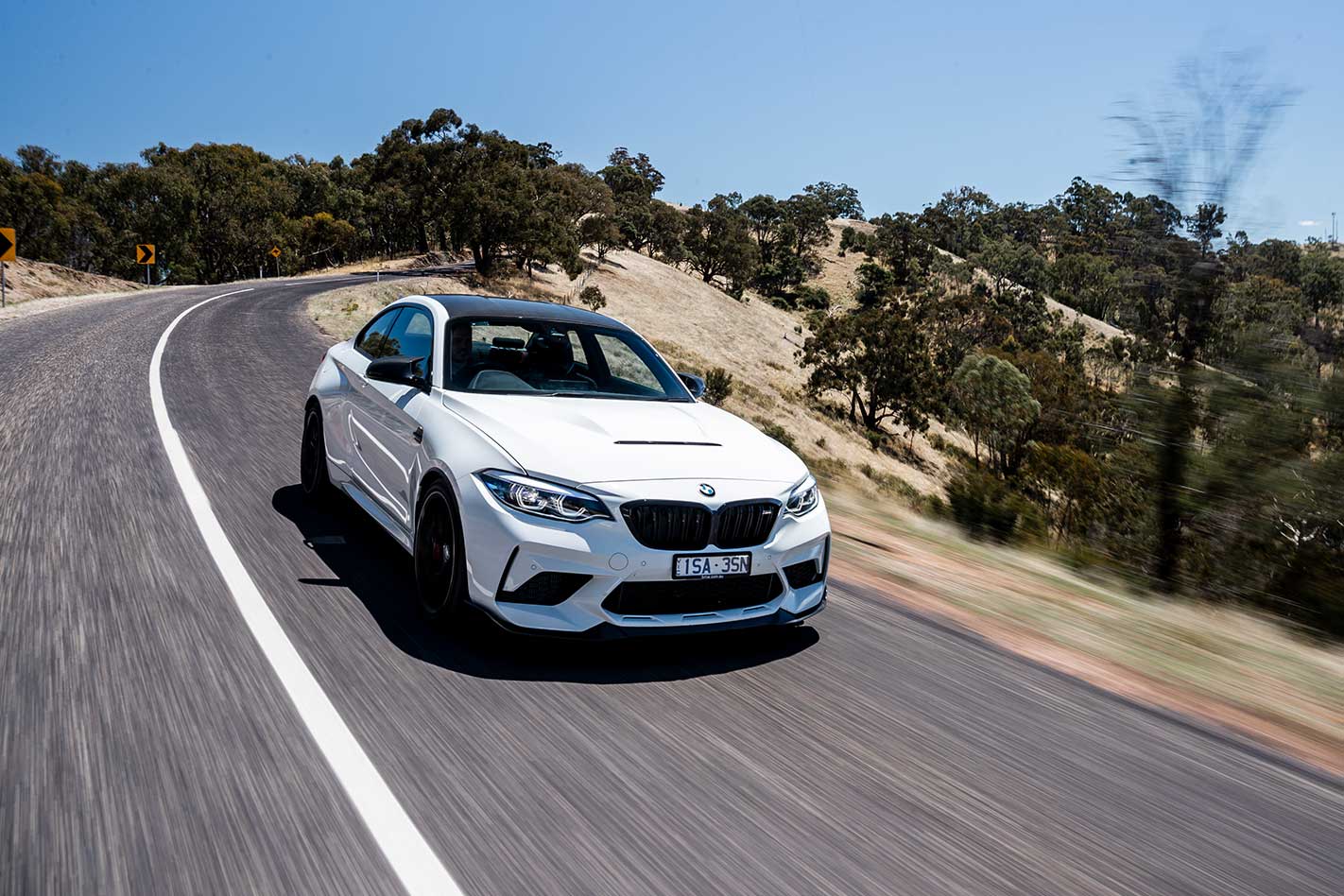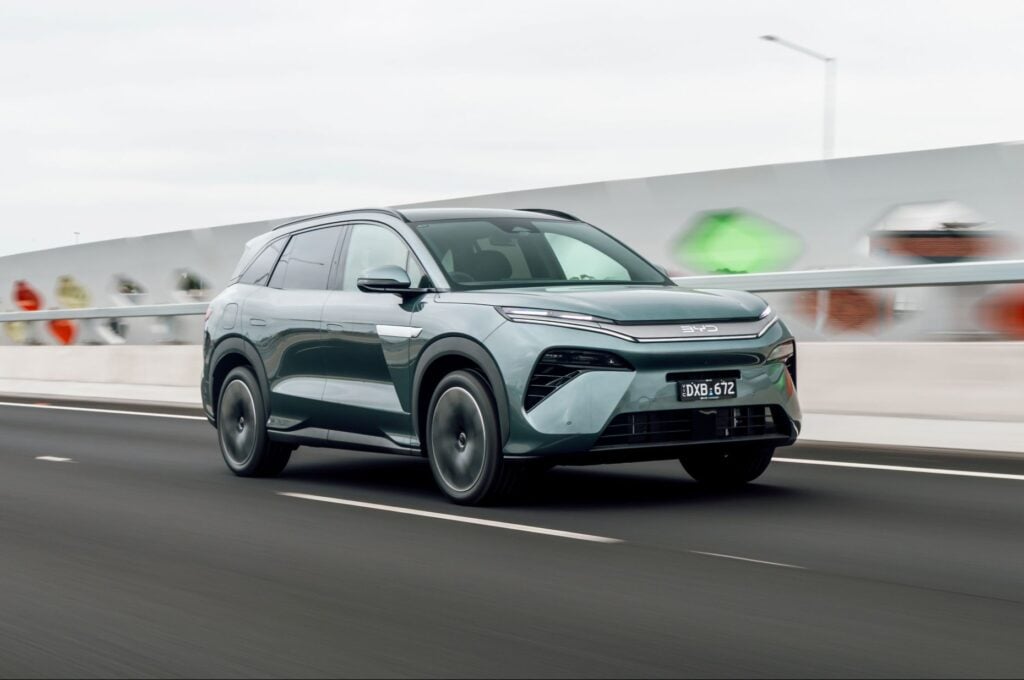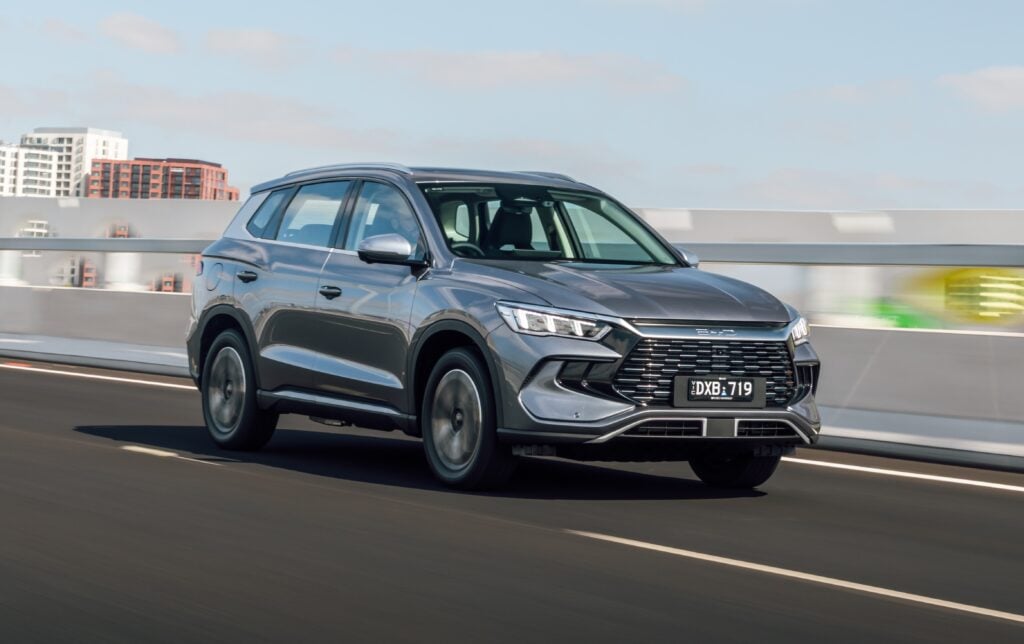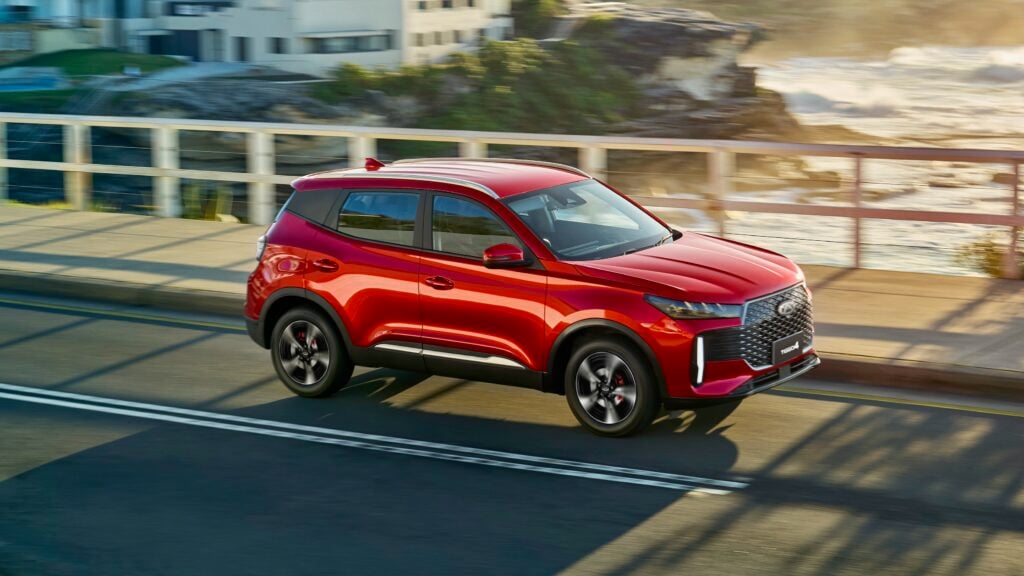Imagine if there was a car-making device that allowed you to input a request and have it spit out a corresponding machine. Were you to plug in “ultimate rear-drive sports coupe” then the result might very well be the BMW M2 CS.Take BMW’s smallest rear-drive coupe, stuff it with hitherto unheard of levels of power, upgrade most of the mechanicals to cope then add plenty of kit from the cupboard marked ‘Motorsport’ and the end result is a pumped-up two-door that arguably sticks more closely to BMW’s traditional brand values than any other model.
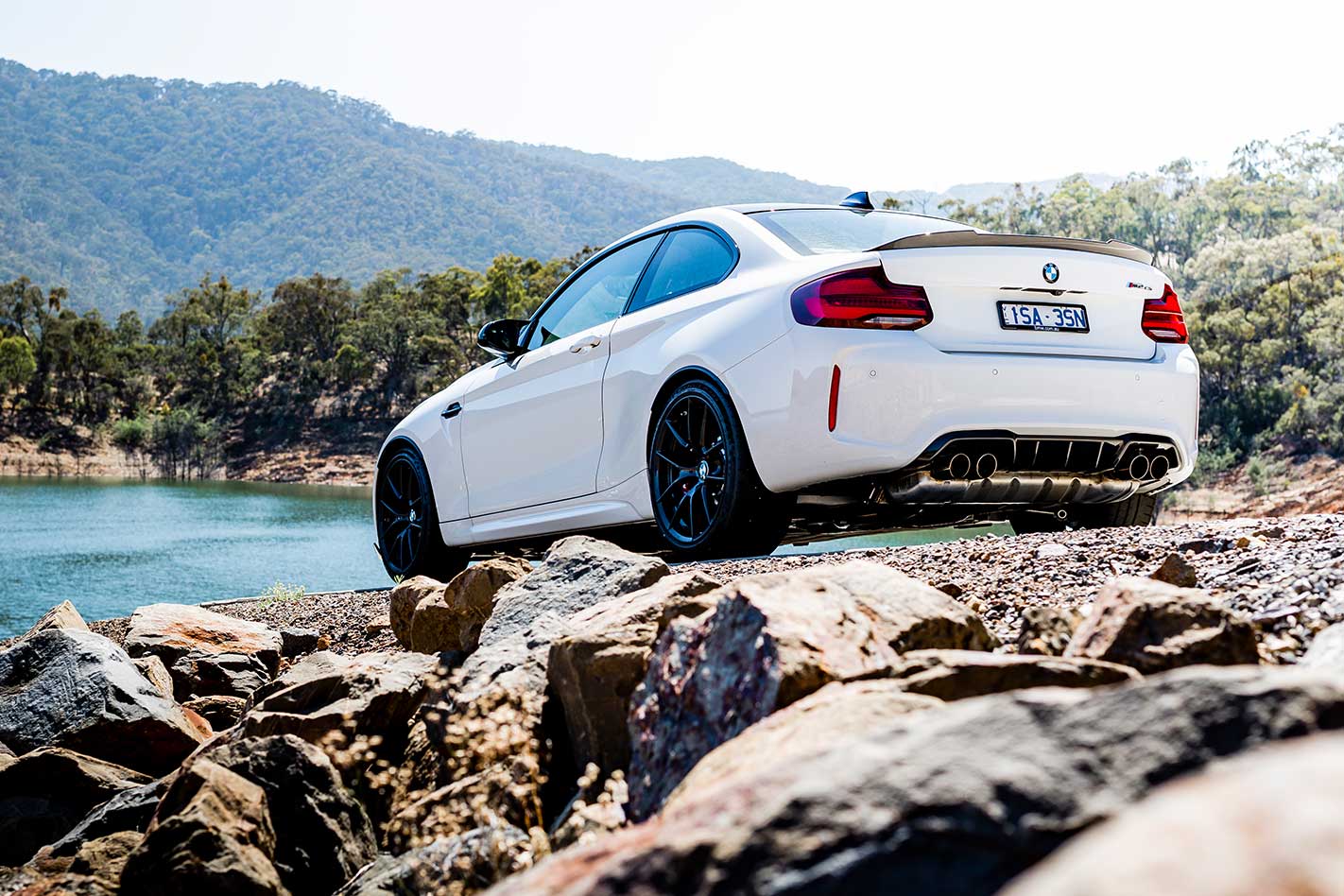
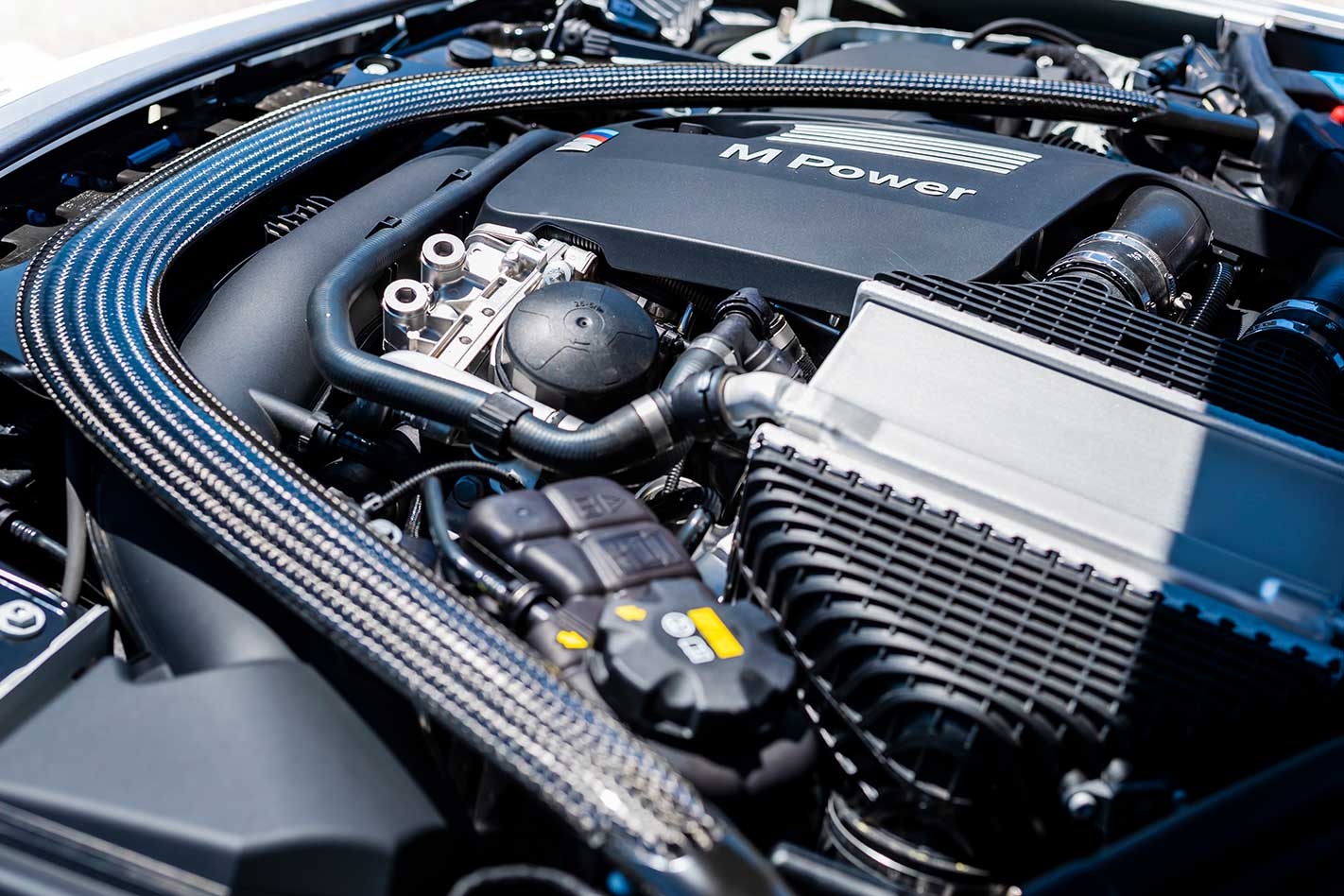
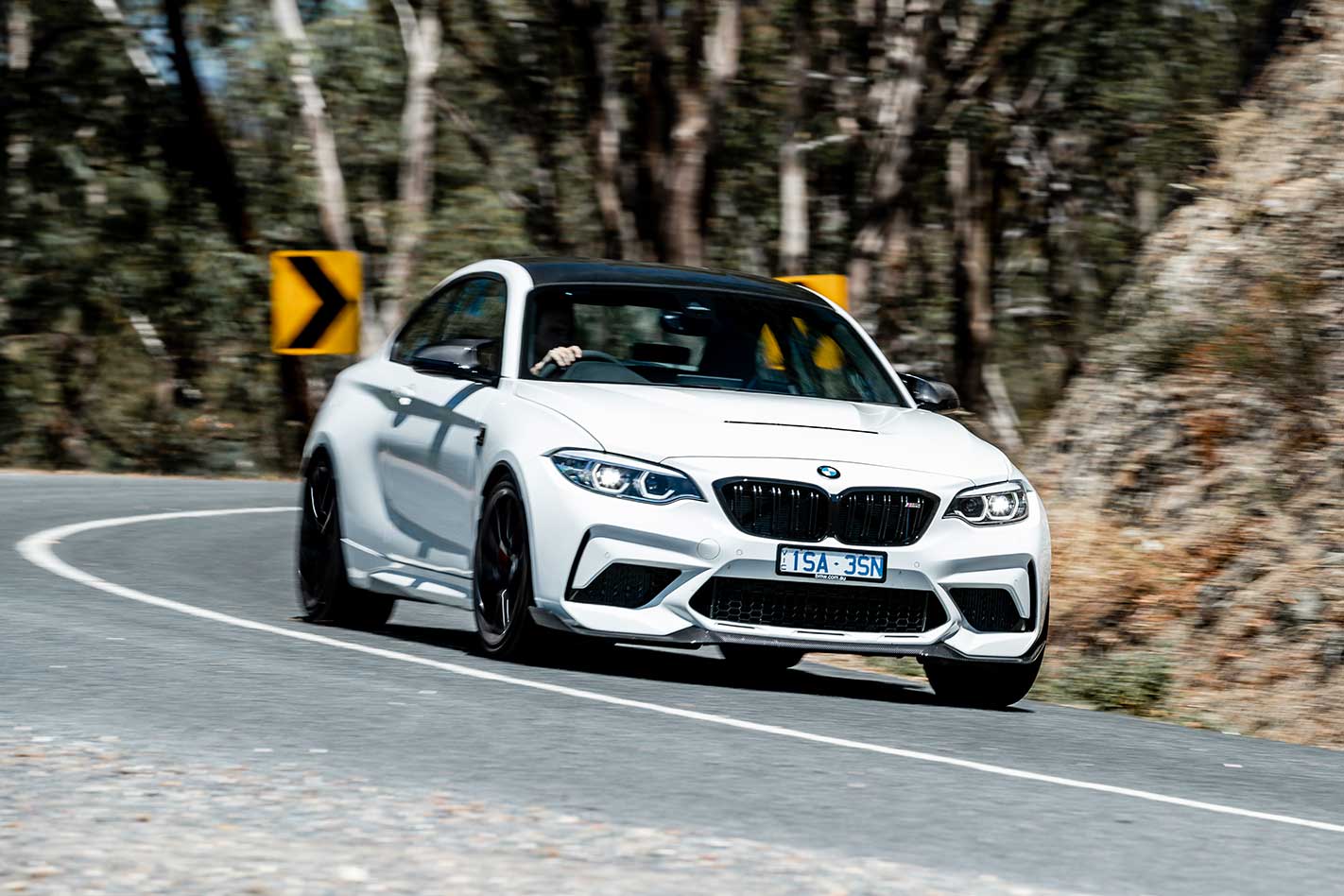
Why this is the case is beyond me, for you’re left with a dozy throttle pedal, weighty steering and a jittery ride. There must be a way to alter this, but despite plenty of searching in the iDrive infotainment we failed to find it.
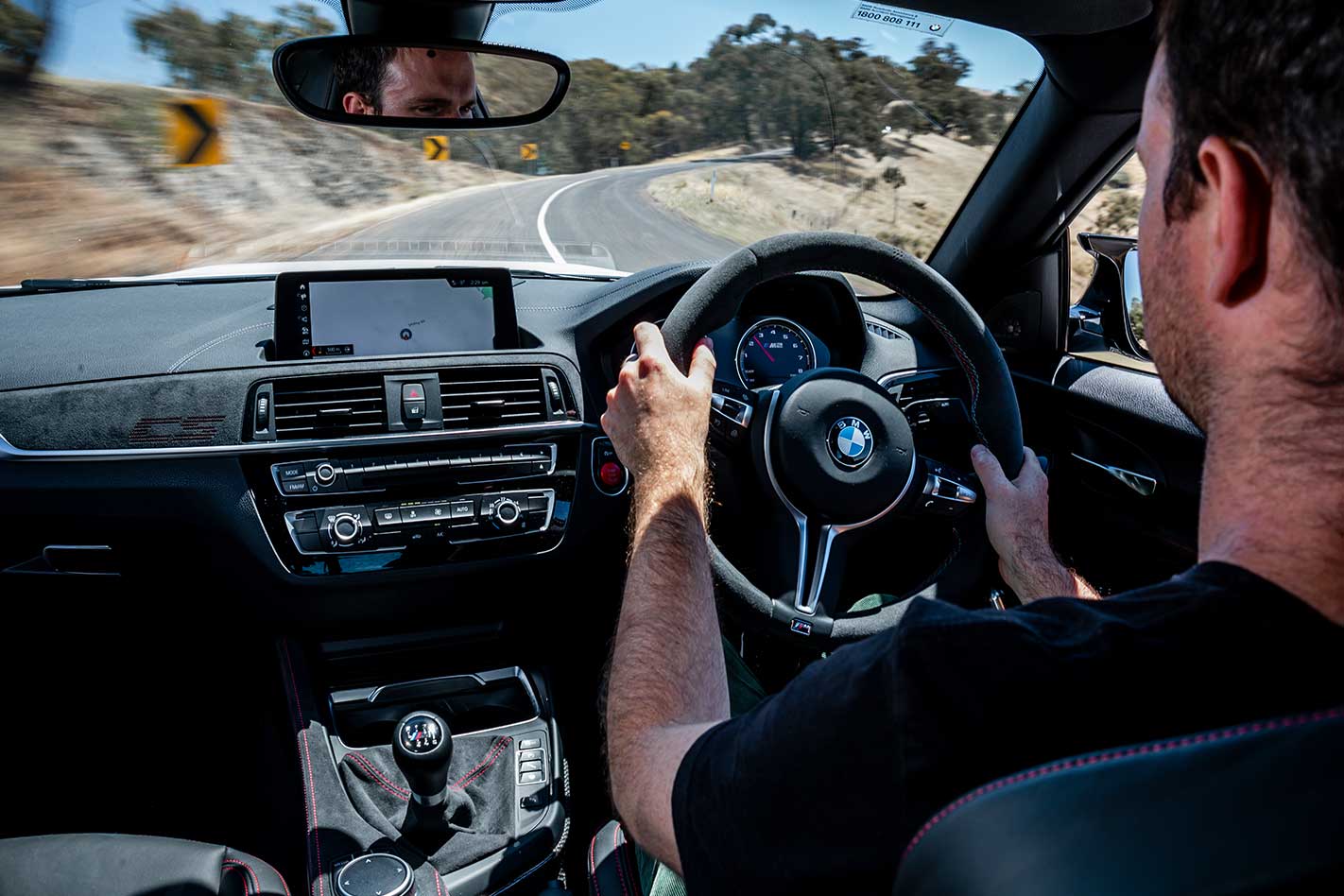
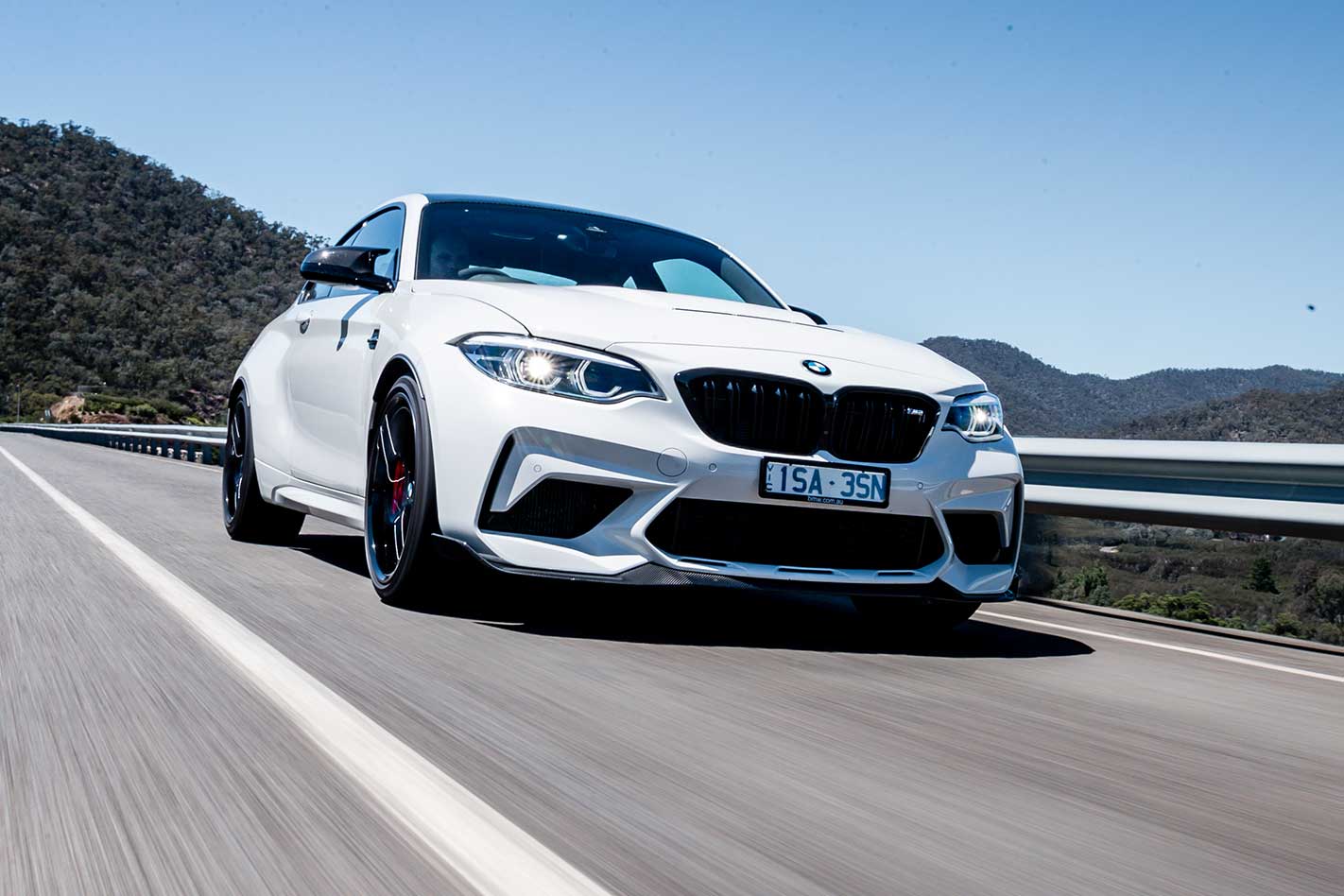
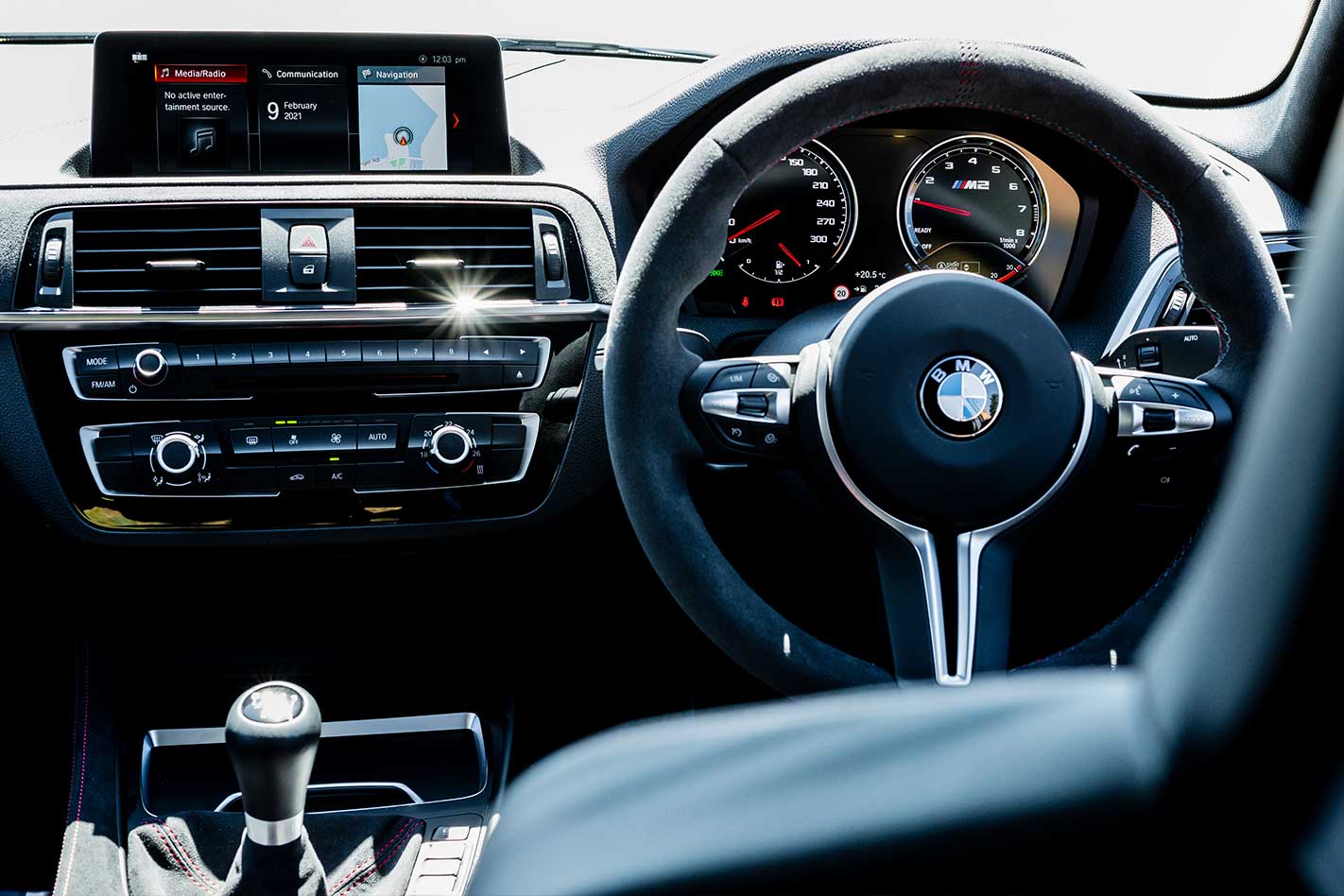
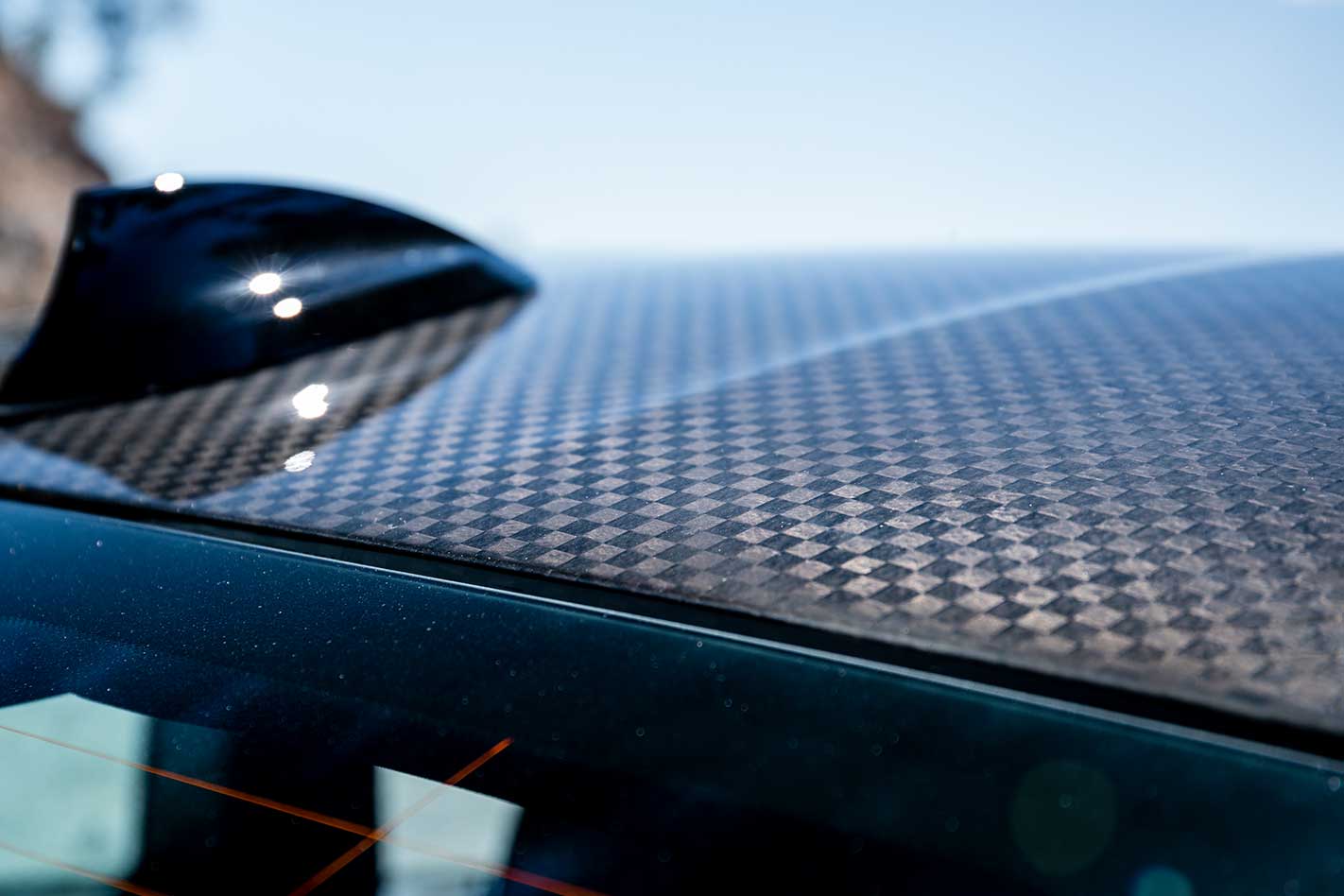
8.5/10
Pros: sublime rear-drive dynamics; improved comfort; rarity
Cons: big money; small fuel tank; reduced noiseSpecificationsBody: 2-door, 4-seat coupe Drive: rear-wheel Engine: 2979cc inline-6cyl, DOHC, 24v, twin-turbo Bore/stroke: 89.6 x 84.0mm Compression: 10.2:1 Power: 331kW @ 6250rpm Torque: 550Nm @ 2350-5500rpm Fuel Consumption: 10.4L/100km (combined/claimed) 0-100km/h: 4.2sec (claimed) Top Speed: 280km/h (limited) Weight: 1550kg Power/weight: 214kW/tonne Transmission: 6-speed manual Suspension: struts, coil springs, adaptive dampers, anti-roll bar (f); multi-links, coil springs, adaptive dampers, anti-roll bar (r) L/W/H: 4461/1871/1414mm Wheelbase: 2693mm Tracks: 1579/1601mm Steering: electrically assisted rack-and-oinion Brakes: 400mm ventilated/drilled discs, 6-piston calipers (f); 380mm ventilated/drilled discs, 4-piston calipers (r) Wheels: 19 x 9.0-inch (f); 19 x 10.0-inch (r) Tyres: 245/35 ZR19 (f); 265/35 ZR19 (r) Michelin Pilot Sport Cup 2 Price: $139,900


